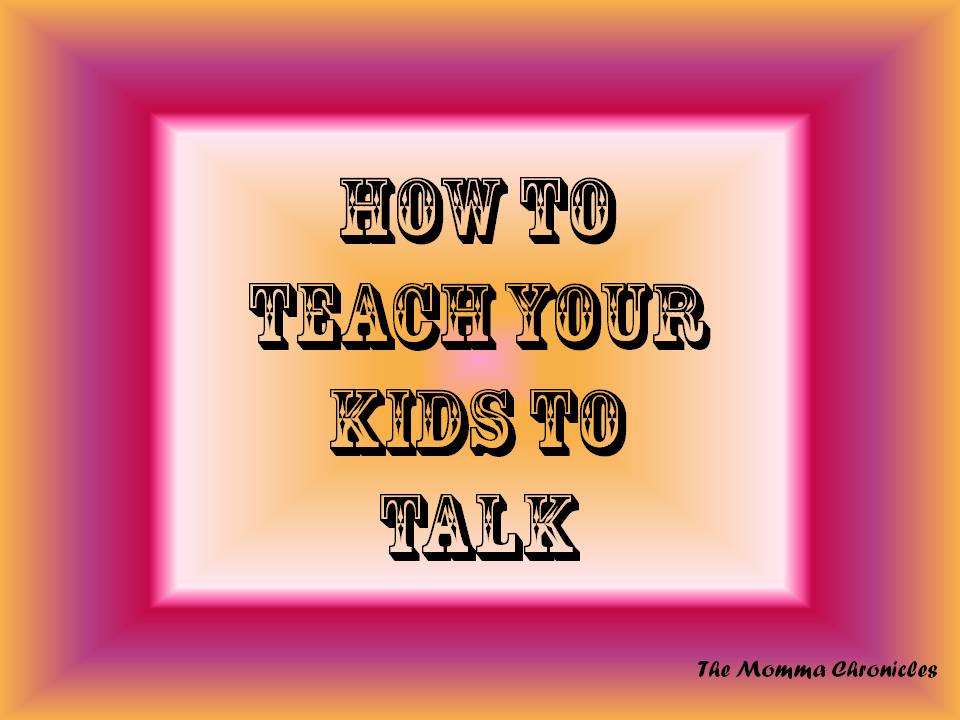 I was an early talker according to my mom. By the time I turned one, I can utter simple words and at two, I can combine words into phrases. But it was different for my two year old. When she turned one, she can’t barely say “mama” or “dada” which caused my mom to be concerned. My baby also kept on pointing at things when she wants something instead of saying it, making it difficult for us to communicate with her. I raised this concern to my baby’s pediatrician but she said there’s nothing to worry about. As long as she can say words with one or two syllables, she’s going to be fine.
I was an early talker according to my mom. By the time I turned one, I can utter simple words and at two, I can combine words into phrases. But it was different for my two year old. When she turned one, she can’t barely say “mama” or “dada” which caused my mom to be concerned. My baby also kept on pointing at things when she wants something instead of saying it, making it difficult for us to communicate with her. I raised this concern to my baby’s pediatrician but she said there’s nothing to worry about. As long as she can say words with one or two syllables, she’s going to be fine.
But being a paranoid mom, that didn’t make me complacent. I looked for ways to get my child to talk and so far, I have been successful, well at least I think I am. Although she’s not exactly talking clearly (she still sounds like a typical two year old), I noticed an improvement in terms of her speech abilities. And right now, she can say simple words – straight – and can combine one to two words.
Here’s what I did:
1. I talked to her often. And in an adult way, of course. One advice I got from my baby’s pedia is always talk to my baby directly. Interaction with the baby is very important because it helped boost her self esteem. I also instructed our helpers to talk to her as much as they can. And as much as possible, I avoid doing a baby talk or “out of this world” language since it will tend to confuse her.
2. Repetition is key. I may sound like a broken record but repeating concepts to her like “drink your milk” or “brush your teeth” or even simple words like “hello” and “bye” definitely paid off. As parents, we should never get tired of telling the same stories over and over because our kids will surprise us and one day and hear them say the stories and concepts we’ve been telling them.
3. Respond. My baby is very talkative – it’s just that I don’t understand what she’s talking about. Still, I try to respond to her words based on what she’s doing. If she’s holding a crayon and trying to color something, I respond by saying “very good” or telling her which crayon she should use. This encourages my baby to talk more, at least in her own language, because she knows someone is actually listening to her.
4. Make use of technology. But before you react, let me qualify this. Technology has its good side too and one thing I noticed is that my daughter imitates what she sees on TV. She loves watching Barney, Dora the Explorer and Hi-5 and so far, her language is based on what she has seen on TV. She’s been yelling “map” and “backpack” at the sight of it and even responds to Dora, as if she’s Boots.
iPad has its shining moments too. I downloaded educational apps with stories, ABC and numbers and I was so surprised to hear her recite the alphabet. And I’m even more surprised to know that she actually recognized and remembered the letters that everything she sees something with letters, she reads it. Again, repetition is key.
5. Do what you say. As much as possible, I also demonstrate what I’m trying to tell my daughter. When I say “fix your toys,” I show her how to fix toys by also putting it in the toy basket. It’s about making ideas more concrete to make it easier for the child to understand.
6. Stick to just one language. My mom had an officemate who’s daughter was not talking until she’s 3 years old. When her parents went to a speech therapist, they found out the cause: she cannot understand Filipino. Because of the shows the little girl is watching, which turns out to be in English, she only came to understand the English language. When it comes to my daughter, I stick to one language to avoid confusion.
At the end of the day, it’s all about patience. Every child is different and I guess mine is just a late talker. But as a parent, it is important not to put too much pressure on the child. They’re still going through a lot of developmental changes, trying to figure out with their innocent minds how things work. Children will talk eventually. And kids can understand us in ways we can’t imagine. But if your child is still not talking after s/he turned two or if you feel like something is wrong, consult a speech therapist immediately. There might be something going on and it’s better to address it while it’s still early.

Ayi is a stay-at-home mom of two. When her kids are in their best state, she keeps up with chores, work, and ensuring that her sanity is intact. Join her as she navigates through this rollercoaster ride called motherhood.













0 Comments